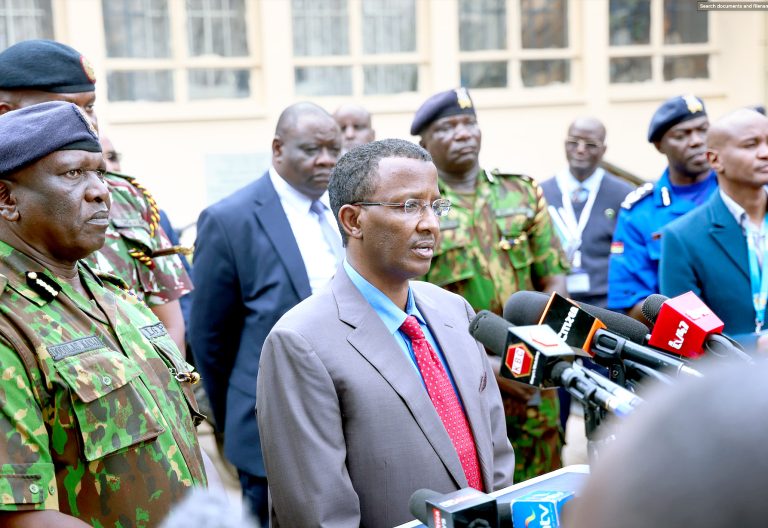If IG Kanja can’t lead police, he must quit

The tragic killing of blogger Albert Ojwang at Nairobi’s Central Police Station cells is not just a gruesome reminder of the deep rot within Kenya’s law enforcement system, but also a damning indictment of the leadership of Inspector General of Police Douglas Kanja.
The fact that this incident took place in a police station, under the watch of officers who are sworn to protect and uphold the law, signals an alarming loss of control within the service and calls into question the competence and integrity of its highest office.
Though for the first time Kanja has appeared to take action by moving quickly to interdict the officers on duty that day, starting with the station commander, Kenyans are slowly losing confidence and trust in his leadership.
Since he entered that red-carpeted office at Jogoo House B, Kanja has been moving from one controversy to another without offering any lasting solution to the problems that appear to emanate from tendency to please the Kenya Kwanza honchos without questioning orders given to him.
From the State-sponsored abductions, extrajudicial killings and enforced disappearances to crackdowns on social media users and a ban on any form of protests, Kanja risks leaving behind an ignominious legacy.
The police service is at a crossroads.
It can either continue down a path of impunity, where officers operate with little fear of consequences for their actions, or it can reform itself, becoming an institution that serves the public with integrity, professionalism, and respect for human rights.
The latter, of course, requires strong leadership. If Kanja cannot demonstrate that he is capable of leading the police force in this direction, it may be time for him to step aside, allowing a new generation of leaders to take charge.
Kanja, as the leader of the National Police Service, must take responsibility for the actions of his officers.
The killing of Ojwang reflects his inability to lead, and whether or not he can restore control to the service is now a critical question.
One of the key issues in the police service is the entrenched culture of impunity. Officers who abuse their power or commit crimes in the course of their duty often go unpunished, while victims are left with little recourse for justice.
For Kanja, this moment is a test. The public is watching.













